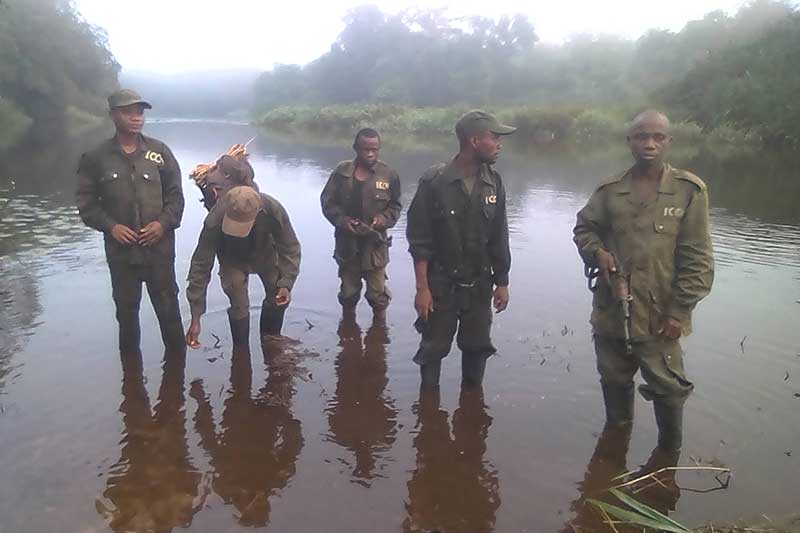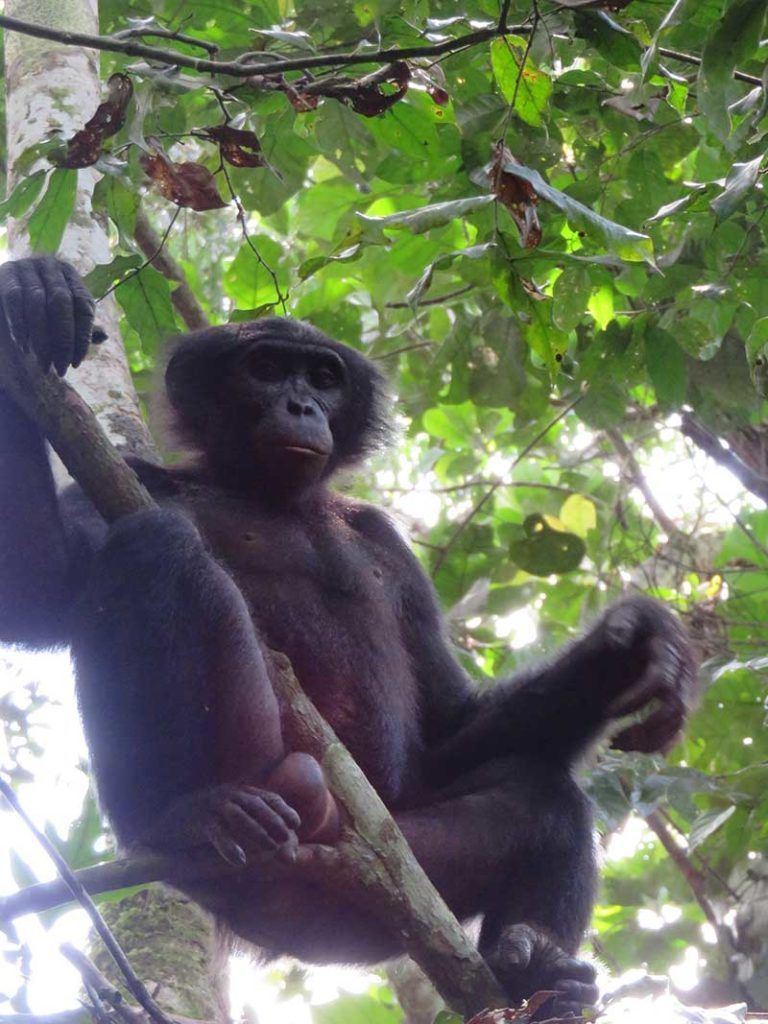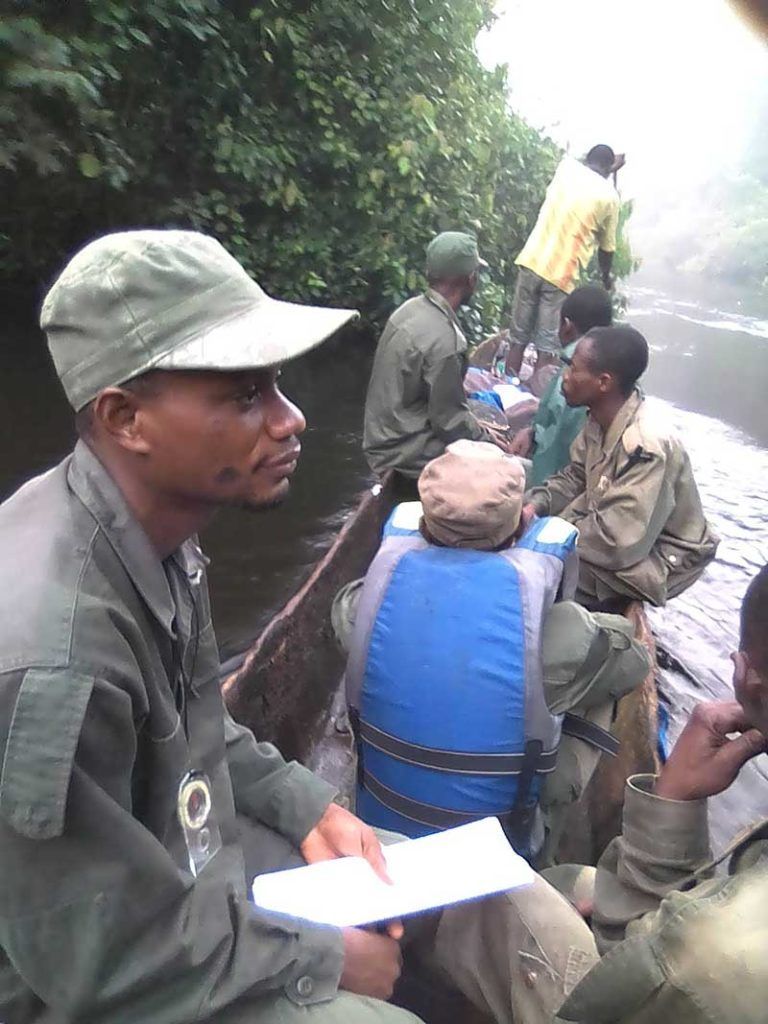Preventing bonobo hunting in DRC Iyondji Community Reserve
Threats facing these great apes
Bonobos are our closest relatives and yet they live such an elusive life in the forests of Central Africa that we still know very little about them, compared with chimpanzees and gorillas. We have been supporting African Wildlife Foundation to work with local rangers in the Iyondji Nature Reserve in the Democratic Republic of Congo. Iyondji is home to 700 bonobos. The main threats facing these great apes are loss of forest habitat and poaching. Encroachment by settled groups means that pressures on wildlife have increased.
Rangers on patrol
There are estimated to be fewer than 20,000 bonobos left globally, and those that do remain are scattered. Our project has involved training rangers to patrol Iyondji forest regularly. Ensuring that ranger teams are walking across the reserve frequently means that potential loggers and hunters are deterred from using the nature reserve.
Our project has involved training rangers to patrol Iyondji forest regularly. Ensuring that ranger teams are walking across the reserve frequently means that potential loggers and hunters are deterred from using the nature reserve.
The teams also count bonobos, their nests and any other signs of the animals as they walk along the transects. This means they keep a good record of where the apes are and, importantly, how many of them there are. Our rangers also worked closely with the local community to raise awareness about why it’s important to protect these apes. They then work alongside the local community to ensure the reserve is not subject to logging or hunting activities that are unsustainable.

Reducing bonobo hunting
We are pleased to report that human activity and bonobo hunting levels have dropped substantially over the course of the project and there have been no reports of bonobo hunting in the last year. We hope that that our continued work and awareness raising about the plight of the species will lead to the people living alongside these wonderful animals becoming proud and protective of their local wildlife in the future.
Thank you for helping us fund this vital work to save bonobos
Donate today to support more conservation success stories


